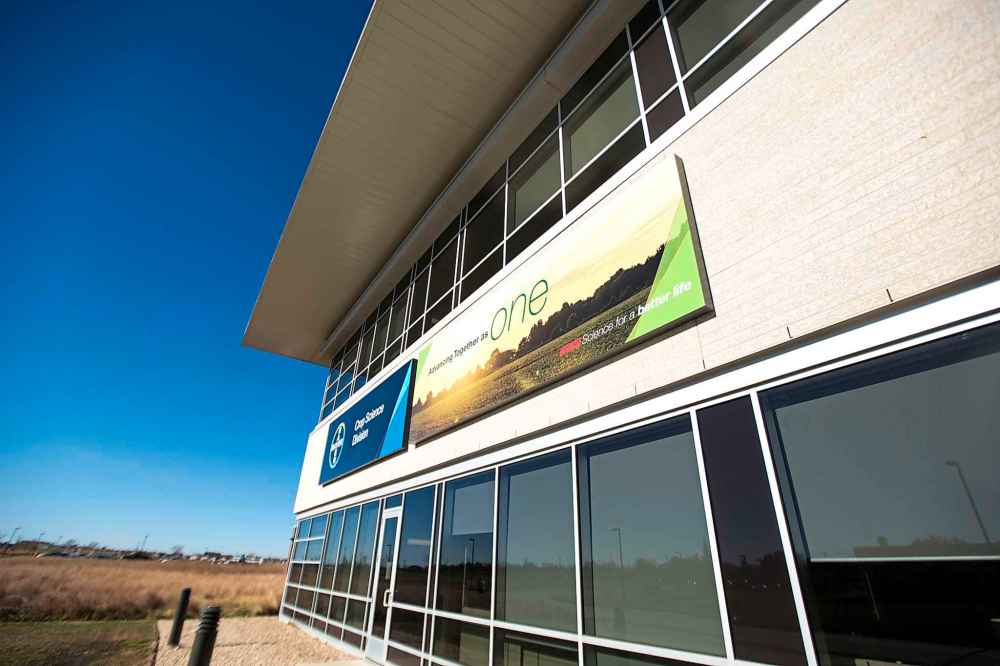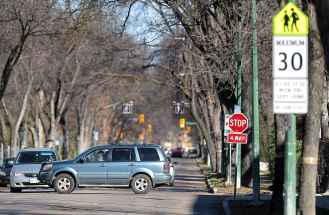Monsanto head office relocating to Calgary Company moving closer to parent company Bayers
Read this article for free:
or
Already have an account? Log in here »
To continue reading, please subscribe:
Monthly Digital Subscription
$0 for the first 4 weeks*
- Enjoy unlimited reading on winnipegfreepress.com
- Read the E-Edition, our digital replica newspaper
- Access News Break, our award-winning app
- Play interactive puzzles
*No charge for 4 weeks then price increases to the regular rate of $19.00 plus GST every four weeks. Offer available to new and qualified returning subscribers only. Cancel any time.
Monthly Digital Subscription
$4.75/week*
- Enjoy unlimited reading on winnipegfreepress.com
- Read the E-Edition, our digital replica newspaper
- Access News Break, our award-winning app
- Play interactive puzzles
*Billed as $19 plus GST every four weeks. Cancel any time.
To continue reading, please subscribe:
Add Free Press access to your Brandon Sun subscription for only an additional
$1 for the first 4 weeks*
*Your next subscription payment will increase by $1.00 and you will be charged $16.99 plus GST for four weeks. After four weeks, your payment will increase to $23.99 plus GST every four weeks.
Read unlimited articles for free today:
or
Already have an account? Log in here »
Hey there, time traveller!
This article was published 18/10/2018 (2616 days ago), so information in it may no longer be current.
Winnipeg is losing a major head office after Bayer Canada informed employees last week it’s moving the former Monsanto headquarters to Calgary.
The move impacts 71 staff located at the former Monsanto office at the University of Manitoba’s Smartpark. It isn’t known yet how many of the staff will be extended job offers in Calgary.
German multinational company Bayer bought U.S.-owned Monsanto two years ago, but regulatory approval wasn’t finalized until this summer.

The two companies were not even allowed to talk to each other for much of that period. Part of regulatory process saw Bayer divest some crop science assets to another German company, BASF.
One of Bayer’s first acts following regulatory approval was to decide where to locate the Canadian head office of the combined companies. Bayer’s Canadian head office was already in Calgary.
“They didn’t want to move ahead offering people roles without knowing where those roles would be located,” said Trish Jordan, Bayer public and industry affairs director. Those roles will become more defined in the next month or so, she said.
The shuffle includes Jordan, who moved to Winnipeg with her family to work at Monsanto in 1996.
The decision to relocate also comes as a blow to Winnipeg’s reputation as the centre of the Canadian grain sector. The crop sector does not have as strong a presence in Calgary.
Bayer struck a committee, including an internal real estate board, to determine where the Canadian head office should be located. A number of factors were reviewed, including company headcounts at each location, the number of employees needing to relocate, available office space, taxes, cost of living, etc.
Economic development offices in Winnipeg and Calgary also duked it out.
Monsanto had more employees in Winnipeg than Bayer in Calgary, but that was before Bayer had to divest assets to BASF.
“We knew it was a tough battle for us. But YES! Winnipeg put together a really impressive package to say why Winnipeg was a great choice for Bayer,” said Dayna Spiring, CEO of Economic Development Winnipeg, which oversees YES! Winnipeg.
“We talked about Smartpark, and promoted the fact we are a leader in food research and innovation, advanced crop research and precision agriculture,” she said.
YES! Winnipeg also enlisted two top Bayer clients in Cargill and Richardson International to help convince Bayer to set up in Winnipeg. Mayor Brian Bowman telephoned the president of Bayer, as well.
“We gave it the old college try, but we came up short on this one,” Spiring said.
Spiring said Calgary is hurting from the downturn in the oil sector and has a lot of vacant downtown office space right now.
“Calgary is not doing well right now. You’ll see their province and the city really throw great incentives at companies because the reality is their downtown is empty,” she said.
Monsanto’s name had become synonymous with genetically modified crops and evolved into a dirty word among environmental activists. But Monsanto was a major force in modern agriculture, particularly with its invention of glyphosate, the most widely used herbicide in the world today.
“It basically revolutionized agriculture,” Jordan said.
Glyphosate also allowed farmers to adopt environmentally-friendly practises like no-till farming so soils didn’t have to be disturbed and potentially blow away.
“We were an innovator and leader in changing agriculture and bringing science and biotechnology to crops,” she said.
Monsanto’s Canadian head office has been located in the University of Manitoba’s Smartpark since 2005, and it was located on Scurfield Boulevard before that. Jordan said Monsanto has been in Winnipeg at least 30 years.
In about 2000, Monsanto sold off its pharmaceutical division and focused solely on crop science.
Employees will have to move to Calgary before September 2019. Bayer will pick up moving costs.
The announcement last week was for people largely in finance, human resources, marketing and commercial sales. It doesn’t include the former Monsanto canola breeding program that accounts for another 20 employees, many of them plant scientists. That is being reviewed with a decision expected soon.
Neither has a decision been made on the Monsanto office on Berry Street in Winnipeg (16 employees), the Carman research farm (nine employees) or the Headingley research farm (11 employees).That means a total of 56 employees are still waiting for a decision regarding location.
The Monsanto jobs generally are high-paying jobs, with plenty of employees being professionals and having PhDs, and many who have been with Monsanto a long time, Jordan said.
Bayer has over 100,000 employees worldwide and three divisions: pharmaceutical, consumer health, and crop science. Monsanto had about 22,000 employees focused entirely on crop science.
bill.redekop@freepress.mb.ca









